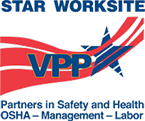
When out in the field for a rescue stand-by job, one of the first things we do is track down the Confined Space Attendant (Hole Watch). At Roco, we've made it a priority to strike up a conversation with the attendant to establish rapport and ensure they understand the work being done, their knowledge of confined space operations, and their role on the “team.” In the confined space world, think of the attendant as the “quarterback” of a football team. Just like a quarterback, the attendant is the pivotal position in executing the entry supervisor’s game plan; which, in this case, is the safe and successful completion of the confined space entry.
Unfortunately, the “hole watch” is too often the low person on the totem pole or the greenest hand on site. Imagine you’re putting together a football team and deciding that the quarterback position is where you’re going to hide your least experienced player. You’ll lose more games than you win, I promise. This is exactly what happens at job sites all over the country every day. Workers get hurt and sometimes killed due to the lack of knowledge and experience in the attendant role.
"Workers get hurt and sometimes killed due to the lack of knowledge and experience in the attendant role."
Much like a quarterback receives a game plan from the head coach, the attendant takes their direction from the entry supervisor. It’s their job to understand the “plays”—the roles and responsibilities laid out by OSHA’s Confined Space Regulation (29 CFR 1910.146)—and to ensure that every part of the operation runs smoothly. The attendant isn’t just a passive player; they’re actively observing the situation, similar to when a quarterback reads the defense on the field.
Take, for example, atmospheric monitoring. Does an untrained person intuitively understand the risks of striated atmospheres? Would they understand how and when to calibrate or bump a monitor? Do they know how to avoid short circuiting or recirculating when using ventilation? They surely couldn’t navigate troubleshooting these situations without proper training. I’ve witnessed firsthand situations where a ventilation fan was placed too close to a bank of gas-powered welding machines, causing carbon monoxide levels inside the space to skyrocket. These normally “untold” stories are far too common and most certainly avoidable – most of us in the standby field have seen this type of misstep repeatedly.
 When a quarterback steps up to the line of scrimmage and sees that the defense is set to shut down the play, they call an audible, or change the play. This quick switch could be the difference between a successful drive and a disastrous turnover. In the same way, a well-trained attendant has to be ready to make critical decisions on the spot. If the conditions inside or outside the space change, or if a hazard suddenly arises, the attendant must “call an audible” by ordering an evacuation and consulting the entry supervisor for an adjusted game plan. The confidence and training to pull off this maneuver has saved lives time and time again.
When a quarterback steps up to the line of scrimmage and sees that the defense is set to shut down the play, they call an audible, or change the play. This quick switch could be the difference between a successful drive and a disastrous turnover. In the same way, a well-trained attendant has to be ready to make critical decisions on the spot. If the conditions inside or outside the space change, or if a hazard suddenly arises, the attendant must “call an audible” by ordering an evacuation and consulting the entry supervisor for an adjusted game plan. The confidence and training to pull off this maneuver has saved lives time and time again.
There was a situation about ten years ago where a skilled attendant was overseeing an entry into an underground vault where the entrants were installing a new valve. The attendant had been involved in shutting down and isolating the space, much like a quarterback, who’s been studying the defense all week. When it came time to re-pressurize the line, the attendant made a crucial call. He ordered the entrants to exit the space while the pipe was brought up to pressure, despite their protests that they needed to stay in to handle any potential leaks. It was the equivalent of calling an audible. The line ruptured, and the vault filled with water in a matter of seconds. The attendant’s decision saved lives—just like a quarterback’s quick thinking can turn a losing play into a game-winning moment.
"The attendant’s decision saved lives—just like a quarterback’s quick thinking can turn a losing play into a game-winning moment."
In both football and confined space operations, success hinges on the ability to execute a plan, adapt to changing conditions, and communicate effectively. The confined space attendant, like a quarterback, is much more than just a player in the game—they’re the key to making sure everyone gets out safely.
Learn More
 Chris Warrick, NRP, is a Nationally Registered Paramedic, Confined Space Rescue Technician, and EMS educator who serves as Medical Program Manager at Roco Rescue. Most recently, he has taken on the added responsibility of Marketing Coordinator. Chris is an avid photographer and videographer, who spends lots of time at the Roco Training Center – where all of the action is. He also writes and publishes blogs on our website, RocoRescue.com. Between the two major responsibilities, Chris keeps very busy and enjoys his work.
Chris Warrick, NRP, is a Nationally Registered Paramedic, Confined Space Rescue Technician, and EMS educator who serves as Medical Program Manager at Roco Rescue. Most recently, he has taken on the added responsibility of Marketing Coordinator. Chris is an avid photographer and videographer, who spends lots of time at the Roco Training Center – where all of the action is. He also writes and publishes blogs on our website, RocoRescue.com. Between the two major responsibilities, Chris keeps very busy and enjoys his work.







